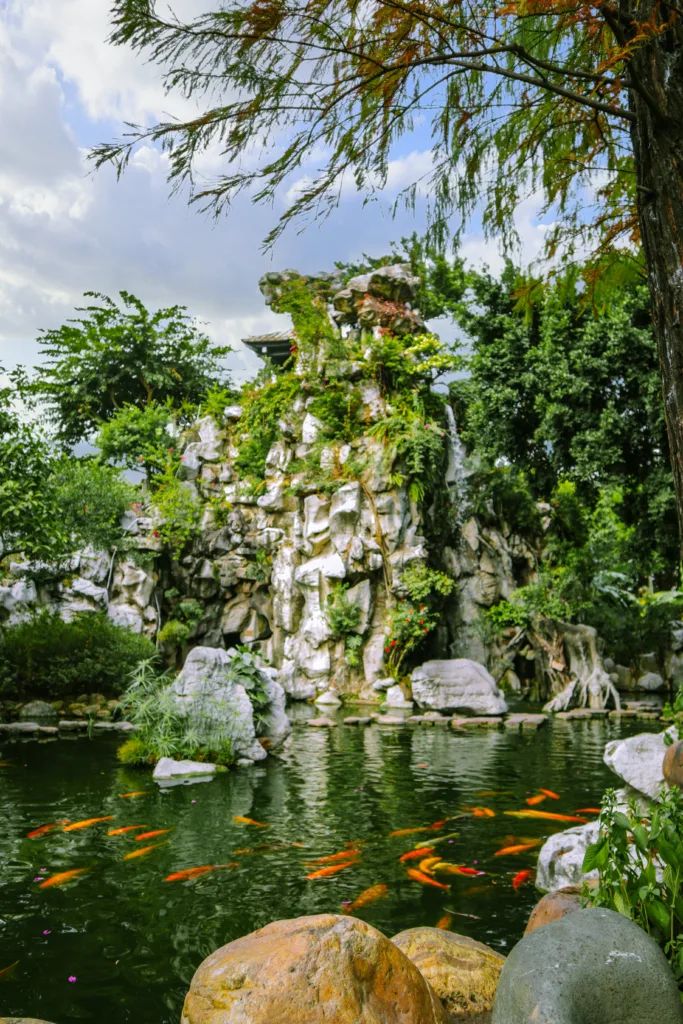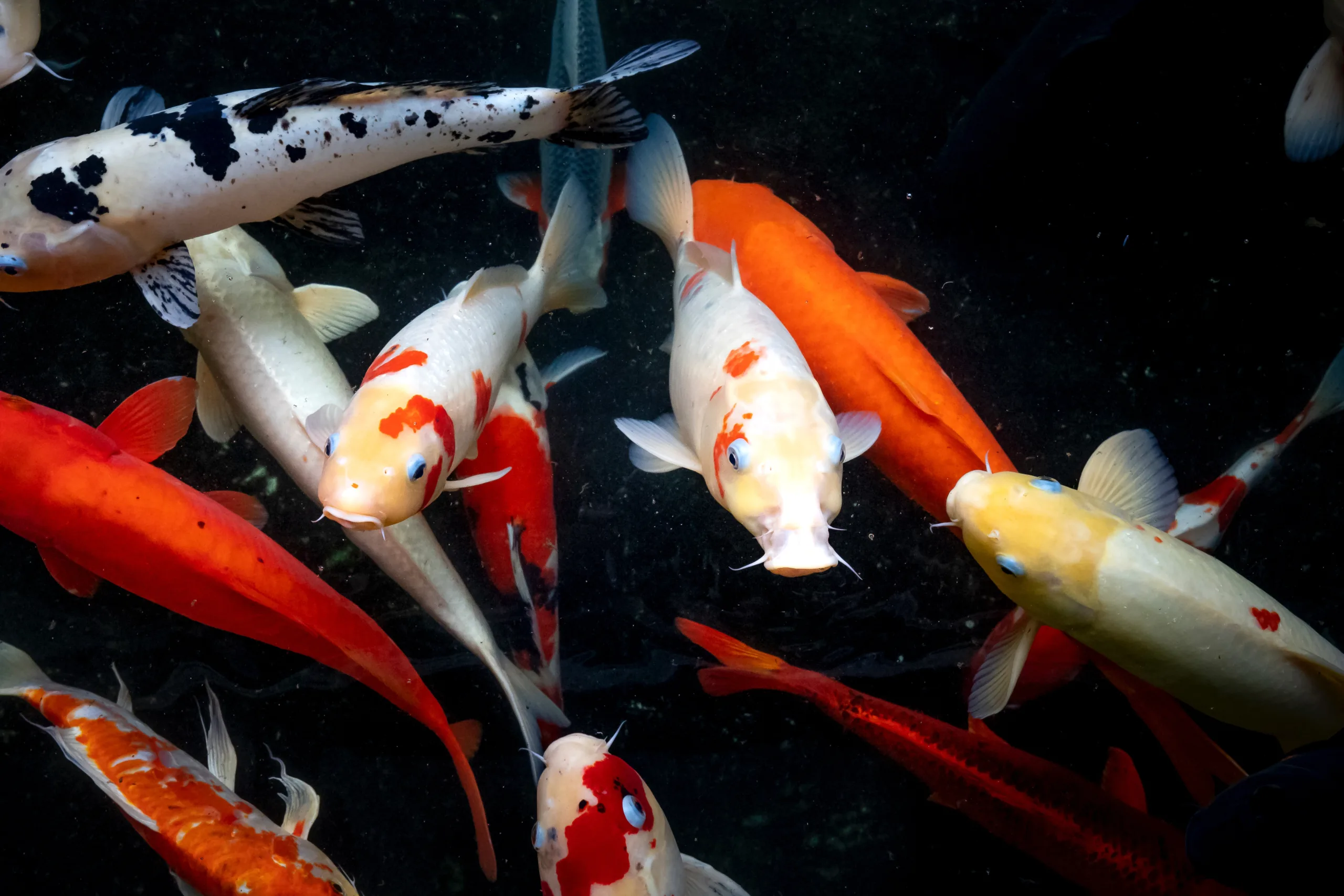These fascinating creatures have captured the hearts of many people around the world, particularly in Japan, where they hold a special place in their culture and history. Join me as we dive into the world of koi fish, their origins, cultural importance, symbolism, and more.
What are Koi Fish?
Koi fish are a type of ornamental fish that belong to the family Cyprinidae, which also includes goldfish. They are known for their beautiful and vibrant colors and patterns, which make them a popular choice for fish enthusiasts and pond keepers alike. Originally bred in Japan, koi fish have become a global phenomenon and can now be found in ponds and water gardens all over the world.
How big can Koi fish get? Koi fish can grow up to three feet long. How long can Koi fish live? They can live for several decades, making them a long-term commitment for those who choose to keep them. They are omnivorous, meaning they eat both plant and animal matter, and are known for their lively personalities and playful behavior.
History of Koi Fish in Japan
Koi fish have a long and storied history in Japan, dating back to the 17th century. Originally bred for their color, koi fish were seen as a status symbol among the aristocracy and wealthy merchants. In the early 20th century, koi breeding became a popular pastime among the general public, and new breeds of koi were developed with even more stunning colors and patterns.
During World War II, many koi farms were destroyed, but the passion for koi breeding persisted, and after the war, koi farms began to flourish again. Today, Japan is still considered the birthplace of koi breeding, and Japanese koi are highly sought after around the world for their beauty and quality.
Importance of Koi Fish in Japanese Culture
Koi fish have played an important role in Japanese culture for centuries. In Japan, koi are seen as a symbol of good luck, prosperity, and perseverance. They are also associated with the Samurai, who valued the koi’s determination and strength.
Koi fish are often depicted in Japanese art and literature, and are a common motif in traditional Japanese tattoos. They are also featured in the annual Koinobori festival, which takes place on Children’s Day in May. During this festival, colorful koi-shaped flags are hung outside homes and public buildings to celebrate the happiness and well-being of children.
Symbolism of Koi Fish
Koi fish have a rich symbolism in both Japanese and Chinese culture. In Japan, koi are often associated with perseverance, as they are known for their ability to swim upstream against strong currents. This symbolism is reflected in the legend of the koi fish, which tells the story of a koi fish that swam up a waterfall to become a dragon.
Koi fish are also seen as a symbol of good fortune and success, as they are often depicted swimming in pairs, which represents love and relationships. In Chinese culture, koi fish are associated with abundance and prosperity, as the Chinese word for koi is a homophone for the word for “surplus” or “abundance.”
Caring for Koi Fish
If you’re considering keeping koi fish, it’s important to understand the level of care and commitment they require. Koi fish need a large, clean pond with good filtration and aeration to thrive, and they require a specific diet to stay healthy. It’s also important to maintain a consistent water temperature and monitor the water quality to prevent disease and ensure their well-being.
While keeping koi fish can be a rewarding and enjoyable hobby, it’s not recommended for everyone. It requires a significant investment of time, effort, and money, as well as a basic understanding of aquatic care and maintenance. Before deciding to keep koi fish, it’s important to do your research and make sure you have the resources and dedication to give them the care they need.

Final Thoughts
Koi fish are truly remarkable creatures that have captured the hearts of people all over the world, but especially in Japan where they hold a special place in their culture and history. From their stunning colors and patterns to their symbolic meaning, koi fish are a beloved and important part of aquatic life. These characteristics can make koi fish extremely expensive.
Whether you’re a seasoned koi keeper or simply appreciate their beauty and symbolism, there’s no denying the impact these fish have had on the world. So next time you see a koi fish swimming gracefully in a pond, take a moment to appreciate their beauty and significance, and remember the rich history and cultural importance they hold.

